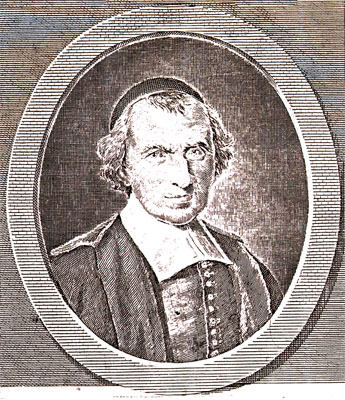
Jean Meslier
If, closing our eyes upon all that transpires in this world, we should rely upon the votaries of the Christian religion, we would believe that the coming of our Divine Saviour has produced the most wonderful revolution and the most complete reform in the morals of nations.
The Messiah, according to Pascal, [See Thoughts of Pascal] ought of Himself alone to produce a great, select, and holy people; conducting and nourishing it, and introducing it into the place of repose and sanctity, rendering it holy to God, making it the temple of God, saving it from the wrath of God, delivering it from the servitude of sin, giving laws to this people, engraving these laws upon their hearts, offering Himself to God for them, crushing the head of the serpent, etc. This great man has forgotten to show us the people upon whom His Divine Messiah has produced the miraculous effects of which He speaks with so much emphasis; so far, it seems, they do not exist upon the earth!
If we examine ever so little the morals of the Christian nations, and listen to the clamors of their priests, we will be obliged to conclude that their God, Jesus Christ, preached without fruit, without success; that His Almighty will still finds in men a resistance, over which this God either can not or does not wish to triumph. The morality of this Divine Doctor which His disciples admire so much, and practice so little, is followed during a whole century but by half a dozen of obscure saints, fanatical and ignorant monks, who alone will have the glory of shining in the celestial court; all the remainder of mortals, although redeemed by the blood of this God, will be the prey of eternal flames.

One of the things I love about Meslier, is the way that he keeps hammering ruthlessly on Christianity’s greatest weakness: it doesn’t appear to work. It’s supposed to make you happy and good; it doesn’t. It’s supposed to teach you morals; it doesn’t make you a better person. It does a pretty good job of promoting its priests and popes, though.
I think Meslier gives too much away by focusing on the dishonesty, ignorance, and venality of the followers of religion. He doesn’t go after the main thing, which is the absurdity of the whole christ legend. The divine messiah doesn’t actually teach anything – it’s all assertions. It’s all ungrounded authority.

… it doesn’t appear to work.
Mysterious ways, damnit!
Pierce R. Butler@#1:
TRY HARDER!
No, it’s we know you’ll sin, then we’ll ask why you didn’t try harder. The guilt keeps you coming back.
I think the central moral lesson of christianity, auto blood sacrifice by the creator, to salve the creator’s pique at not being very good at being a creator probably doesn’t teach much in the way of being good. If it wasn’t so common, people would stop and gawp at the idea of killing one person will undo the errors of other people is a sound basis for a moral system.
Brian English@#4:
If it wasn’t so common, people would stop and gawp at the idea of killing one person will undo the errors of other people is a sound basis for a moral system.
I love asking christians that. It’s pretty hard to get around.
I still like the too clever concept of The Owner of All Infernal Names.
:)
…There was never an armistice between all living and not-so living things, nor can evidence be found to suggest there ever was–or still is–a loosely balanced war tumbling across Creation with the advantage swinging between the forces of light and happiness, and those of darkness and misery. Fire has always burned flesh, water has always drowned babies, and Creation has only ever exhibited but one impulse, one motive, one direction: towards increasing complexity, where complexity–across all systems, animate and inanimate–corresponds precisely to the degree and depth of potential suffering available to those contingent things whose participation in Creation was never solicited.
Clearly, both theses are deeply and deliriously deficient, and yet at the same time both are, however, also stained with enough half-truth to at the very least indicate a third, more consistent, more durable, demonstrable, enormously distasteful, but ultimately unavoidable alternative: that this world was brought into existence by a perfectly wicked, malevolent Creator; a maximally powerful being whose nutritional, emotional and entertainment needs are satisfied best by the suffering which pervades all of Creation, and whose single-minded objective is to amplify His pleasure-taking over time.
Some have named a lesser species of this being the Devil, others The Deceiver, Ahriman, Abaddon, Mara, Baphomet, Apollyon, Iblis, Beast, Angra Mainyu, Yama, Moloch, The Father of Lies, The Author of Sin, Druj, Samnu, Mammon, and The Great Spoiler, yet these characters of human literature and tradition do not begin to approach the nature and scope of this entity who may be identified as simply, The Owner of All Infernal Names: a being who does not share His creation with any other comparable spirit, does not seek to be known to or worshipped by that which He has created (or has allowed to be created), and whose greatest proof of existence is that there is no conspicuous proof of His existence–just teleological birthmarks that can be isolated and examined as testimony–for He understands that the trinkets of His greatest amusement, arousal, and nutritional satisfaction must be blind to the nature of the world they inhabit so they may act freely, and suffer genuinely.
I should give explicit credit to John Zande, whose two books are available through one of the more pernicious, omnipresent vortices of evil…AMAZON.
Brian English:> that is what so bothers me about Christianity…given the Three Omnis, He knew from the beginning we would sin. So why is sin our fault.
Better the Gnostic concept of the failed Demiurge.
bmiller:
The Christian analogue to that concept is the Devil.
(A mere switch of polarity)